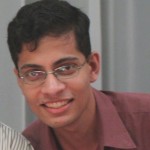Does language presuppose social relations, or do social relations presuppose language? During the Enlightenment, there was an intense preoccupation with the relationship between linguistic ability and sociability. By the middle of the eighteenth century it was a common idea that communicative interaction was the core of social living and, as largely a distinctive feature of humanity, this meant that human life without society was seen as an idle fiction (Hume). These theories of the character of social phenomena had a pre-history in seventeenth-century contract theories, and it is with aspects of this earlier story that I am concerned in this paper.
Early-modern contract theory did not come into the world fully fledged, nor was it one theory, but several significantly different ones. The articulation of a language in which social relations, especially authority, could be understood in contractual terms of some sort was a difficult process and by no means a coherent and linear one. We have to attend to individual episodes when particular argumentative needs were met through adaptation of the general language of contract. Against the background of a brief sketch of Thomas Hobbes’s commonly misunderstood idea a demonstrative science of morals and its implication for his idea of contractual explanation, I will look in particular at the use that Locke’s great contemporary, Samuel Pufendorf (1632-1694), made of a comparable methodology in a situation that was different from that faced by Hobbes. For politico-theological reasons Pufendorf was motivated to eliminate not only metaphysical assumptions about the individuals in contractual relations, but also ‘naturalistic’ assumptions such as those of Hobbes. This led him into radical ideas of the minimal imaginable requirement for being a human agent capable of having contractual relations.
Philosophy Seminar Series.
Date: Thursday, 19 Apr 2012
Time: 2-4pm
Venue: Philosophy Resource Room (AS3 Level 5)
Speaker: Knud Haakonssen, Professor Emeritus of Intellectual History, University of Sussex
Moderator: Dr. Ben Blumson
 About the Speaker: Knud Haakonssen is Professor Emeritus of Intellectual History at the University of Sussex, Honorary Professor of History at University College London, Adjunct Professor of Philosophy at Boston University, and a Long-term Fellow of the Swedish Collegium for Advanced Study in Uppsala. He is a fellow of the Royal Society of Edinburgh, the Royal Danish Academy of Sciences & Letters, and the Royal Historical Society. Professor Haakonssen has worked extensively on the history of moral, political and legal thought with special emphasis on the Enlightenment in Scotland, England, Germany and Scandinavia.
About the Speaker: Knud Haakonssen is Professor Emeritus of Intellectual History at the University of Sussex, Honorary Professor of History at University College London, Adjunct Professor of Philosophy at Boston University, and a Long-term Fellow of the Swedish Collegium for Advanced Study in Uppsala. He is a fellow of the Royal Society of Edinburgh, the Royal Danish Academy of Sciences & Letters, and the Royal Historical Society. Professor Haakonssen has worked extensively on the history of moral, political and legal thought with special emphasis on the Enlightenment in Scotland, England, Germany and Scandinavia.
More information on the Philosophy Seminar Series can be found here. A list of past talks in the series can be found here.



 About the speaker: Kranti completed his Ph.D. in philosophy at Harvard University in May 2011 and is currently a Visiting Fellow at the Centre for Philosophy, Jawaharlal Nehru University, New Delhi, and a Fellow in Philosophy at Harvard University. Kranti’s dissertation focused on the nature of bodily sensations. More generally, he is interested in questions about the metaphysics and epistemology of experience.
About the speaker: Kranti completed his Ph.D. in philosophy at Harvard University in May 2011 and is currently a Visiting Fellow at the Centre for Philosophy, Jawaharlal Nehru University, New Delhi, and a Fellow in Philosophy at Harvard University. Kranti’s dissertation focused on the nature of bodily sensations. More generally, he is interested in questions about the metaphysics and epistemology of experience.



